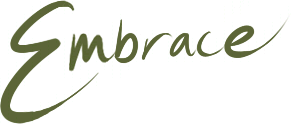 This is a passage on meditation and the art of paying attention in a non judgmental way to all aspects of our experience, including the wanted and the unwanted. It first appeared in the website Awakin which publishes weekly readings from a wide range of wisdom traditions. The article is written by Gill Fronsdal and I re-post it here because I enjoyed his phrase suggesting we “try to fold everything back into our attention.”
This is a passage on meditation and the art of paying attention in a non judgmental way to all aspects of our experience, including the wanted and the unwanted. It first appeared in the website Awakin which publishes weekly readings from a wide range of wisdom traditions. The article is written by Gill Fronsdal and I re-post it here because I enjoyed his phrase suggesting we “try to fold everything back into our attention.”
This for me is the essence of meditation practice: just trying to notice what is present in our experience as it is happening.
I hope you enjoy the piece as much as I did.
One of the things we are trying to do here, is learn to pay attention to seeing what complicates our attention — where we get caught, what makes it difficult. Because the place we get caught is also the place where we are going to feel stress. The place we get hung up is often a very important window into understanding how we are most likely to suffer, or how we are more likely to cause problems in our life.
So we start by paying attention, which we all have the capacity to do. Yet when we get interested in this practice, how is it that our ability to stay calmly connected to the present moment gets somehow disrupted? People who meditate will sometimes think that the disruption is the problem. Disruption sounds like a bad word: “I got disrupted.” I got caught. When we do this meditation practice, we try to not judge anything as being bad or inappropriate. Rather we try to fold everything back into the attention. In other words, to notice this. Pay attention. What’s going on. Notice this, notice this. “Ah, I just got caught. I heard someone cough, and it reminded me that my friend was sick, and I wondered if I should visit my friend in the hospital, and I wonder how late Kaiser is open, and then I notice, “I’m teaching a class…oh!” So, it’s an example of getting pulled in. It was an innocent example, but it could also not be so innocent. Rather than saying that I shouldn’t have had that train of thought, what we try to do is fold everything back into the attention. “Oh, look at that, that’s what a disruption is like. That’s what it’s like for the mind to get hooked, get carried away. That’s what it’s like. That’s what it’s like.”
Do you understand that principle? It is a really important one. Sometimes, people who have been meditating for 10 years haven’t learned this one yet. Haven’t learned that there’s nothing that doesn’t need to happen. There’s nothing that you should say “that shouldn’t happen”. Rather, it’s one more thing to learn to pay attention to. And if you learn to pay attention well, there is freedom to be found in attention. In paying attention, there is a way of doing it where you are not caught, trapped, oppressed, influenced, or driven by what’s going on, inside or outside yourself. And that gives you a tremendous power to go about your life. If you have the ability not to be pushed around by your inner compulsions or the pressures from the outside. We learn this by learning how to use the attention in a new way.
Image courtesy of Vice1
